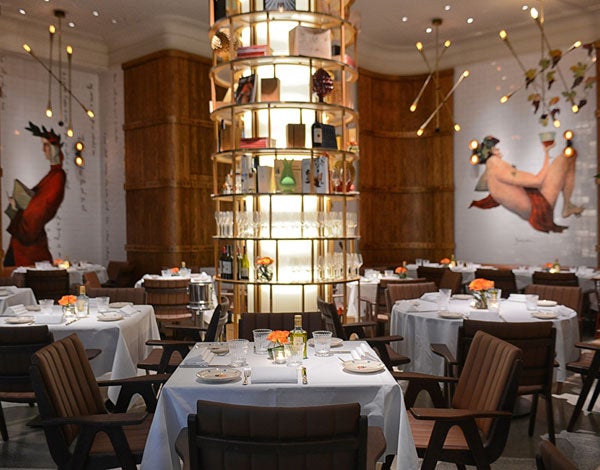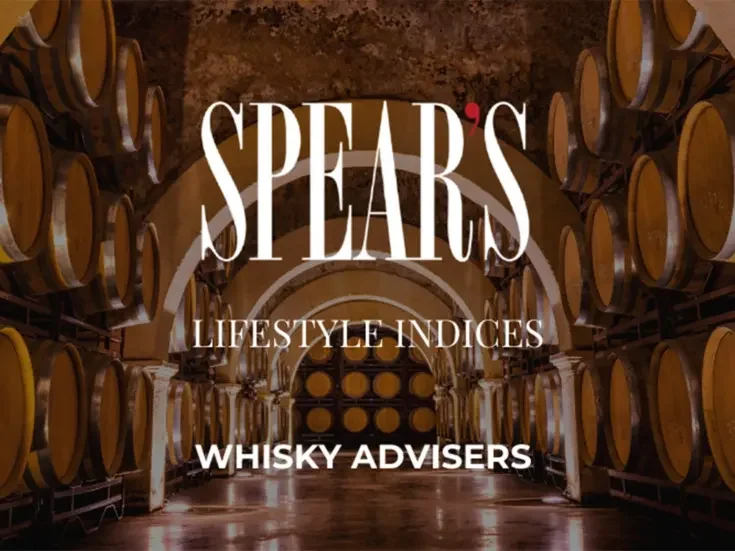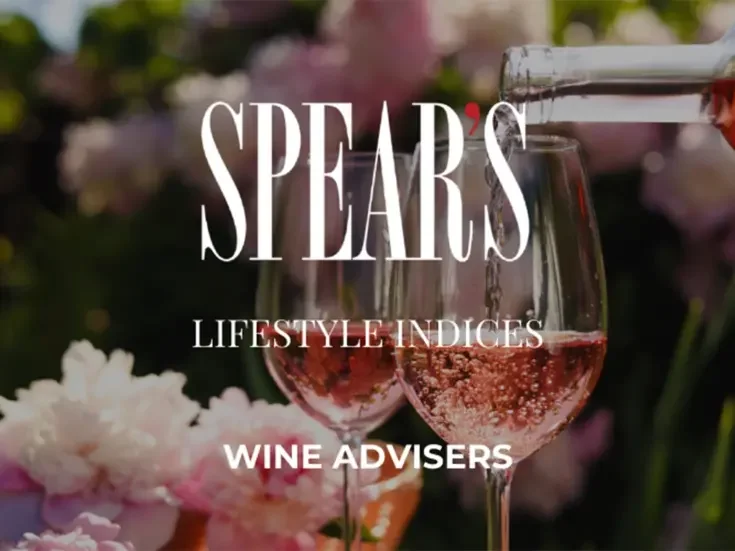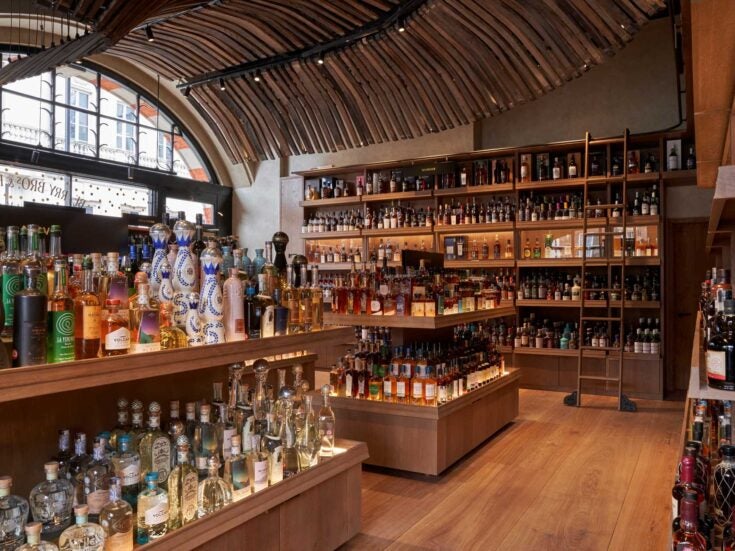

When Spear’s was invited by Diana Frescobaldi to attend a special dinner at her Florentine family’s new Italian restaurant in Mayfair to celebrate the twentieth anniversary of their Luce della Vite wine, I was asked to bring a guest; I took an actress friend.
But as I looked up at the gangling, twenty-foot-tall, pepper-red-and-green ceramic tile mural by Turkish artist Sedat Girgin of Dante — a friend of the Frescobaldi family in the 14th century — that dominates the palazzo-high ceiling of the elegant restaurant, how I would loved to have also had the social and economic historian Sir David Cannadine seated at our table.
Alas, Sir David, an expert on the grandeur and decline of aristocratic families, is now a professor at Princeton, so the chances of getting him to fly over to taste the restaurant’s signature dish, Manzo di pozza, fagiolini e tapenade d’oliva (cured beef with beans and olive tapenade), were slim. But he would have appreciated the Frescobaldi story.
In Aspects of Aristocracy, Cannadine deftly wrote about the casualty rate of once-powerful and wealthy European family dynasties that were unable to keep up with the times and adapt themselves to the 20th century.
As the Darwinian chronicler of European social class, Cannadine’s expertise as a historian has been to identify the often unexpected and unlikely traits of the few families that have bucked this trend towards decline and have transformed themselves from ‘wastrels into heroes’ while other self-satisfied, all-powerful dynasties have sunk without trace.
During the Renaissance, the Frescobaldi family supplied wines to the wedding(s) of Henry VIII, took the ambitious young lawyer-soldier Thomas Cromwell under their wing when he was in Italy and traded wine for works of art with Michelangelo. Like most such dynasties, they have had their share of precarious financial moments — including going bankrupt in the 14th century thanks to the failure of Plantagenet English kings to pay their banking debts — but today the main family business of wine and food is thriving, largely because the Frescobaldi family have long seen their name as their greatest asset, an Italian ‘brand’ synonymous with the highest quality of winemaking long before the idea of global Italian luxury branding was invented after the war.</p>
Diana Frescobaldi has been running the restaurant side of the family business for nearly two decades, since graduating in business economics from Brown University in the USA. In 1997, her breakthrough came when she launched three dei Frescobaldi wine bars inside Fiumicino airport in Rome and also the dei Frescobaldi Ristorante & Wine Bar in Florence, tucked behind the Piazza della Signoria.
‘Our airport wine bars were a great success,’ she says. ‘They were a new thing for airports. We began with salami and cold cuts, served with our wines — the idea soon took off. It’s all about reinventing the wheel.’
Whether it is promoting the artistic DNA of the Frescobaldi name through the Italian Contemporary art prize the family sponsors or marketing the grand cru of olive oils, the ‘Laudemio’, made from their estate’s olives, the Frescobaldi brand name is synonymous with innovation, often with the help of (occasionally invisible) partners.
That was the case in the Middle Ages when the family were an important banking family, and remains so today. Whereas so many once-great Florentine family businesses have imploded — such as the Guccis, who became embroiled in a murder scandal in the Nineties — the Frescobaldi family believe in working together. ‘We are a close family,’ says Diana. ‘Our secret is never to be too greedy and always put the family first.’
Diana now heads up the dei Frescobaldi Retail & Restaurant project, which plans to open a series of similarly upscale Tuscan ‘international-class’ restaurants around the world, following the Mayfair example. The restaurant is airy, spacious and beautiful, with hand-made wooden chairs, and boasts the names of classic Frescobaldi wine estates carved into the oak panelling, while the wine bottles are stacked on illuminated circular shelves and stored in a glass cellar like a living art installation. Downstairs is a cigar room and one of the cosiest, chicest and most discreet bars in London. Should you ever want to enjoy a Bellini tête-à-tête without being seen, I would recommend it.
The new restaurants will be both Frescobaldi- owned and in partnership. The family are no strangers to joint ventures and unlikely-sounding financial partners. ‘We were trading fabrics in Beijing in 1331,’ says Diana, ‘so we have been a global family business for 700 years. We began as bankers and were always very entrepreneurial and cosmopolitan, always looking for new trading opportunities, so this new venture into global restaurants is just following the family tradition, really.’
The Frescobaldi have always embellished and improved what they own, as well as expanding and acquiring new estates. The family’s palatial Tuscan Renaissance villa, I Collazzi, is a good case in point. Its architect is no less than Michelangelo, and it is home to family matriarch Bona Marchi — who hosted Prince Charles and Princess Diana for a week in the Eighties. The garden, approached through a cypress-lined avenue, is built on two levels, the first boasting oaks dating back to the 19th century. The second terrace is known by the family as the ‘Italian’ garden, with geometric flowerbeds and giant lemon trees in pots.
When the likes of Gregory Peck entered through the gates, they probably thought the grand villa had been in the family for centuries. No. I Collazzi was bought in 1933 by Bona’s grandfather, Carlo Marchi. The family then went about restoring Michelangelo’s original designs and employed the Italian architect Pietro Porcinai to build a swimming pool made of yellow and grey quartz.
The partners Diana has chosen to launch the restaurant empire are perhaps the most innovative yet, even more so than Italian fashion icon Gianfranco Ferré and Californian vintner Robert Mondavi, with whom they launched (separate) wines. The anniversary dinner at Frescobaldi was co-hosted by Sanjay Nandi, a partner at Trilantic Europe, and Levent Buyukugur, a Turkish restaurateur whose properties include Anjelique (the Annabel’s of Istanbul), Zuma Istanbul and the Ajia Hotel in Istanbul. This international restaurant power duo have set up hospitality business the Good Food Society; Frescobaldi is the flagship restaurant.
Buyukugur has more than 40 restaurants in Turkey, Russia and Azerbaijan, and he and Nandi invested in Tom Aikens and his Tom’s Kitchen brand before selling it on. With the help of the Frescobaldi family they are building the Good Food Society into a group to take on the might of such restaurant buccaneers as the Cipriani, Caring and Soho House groups. With new global markets for international cuisine opening up in Delhi, Moscow and Beijing, expect Frescobaldi to keep surprising the social historians who say that 700 years of Italian aristocracy and progressive business don’t mix. I loved my Insalata di fagioli con cipolla di Tropea so much that I went back two days later for lunch.








